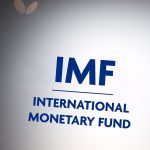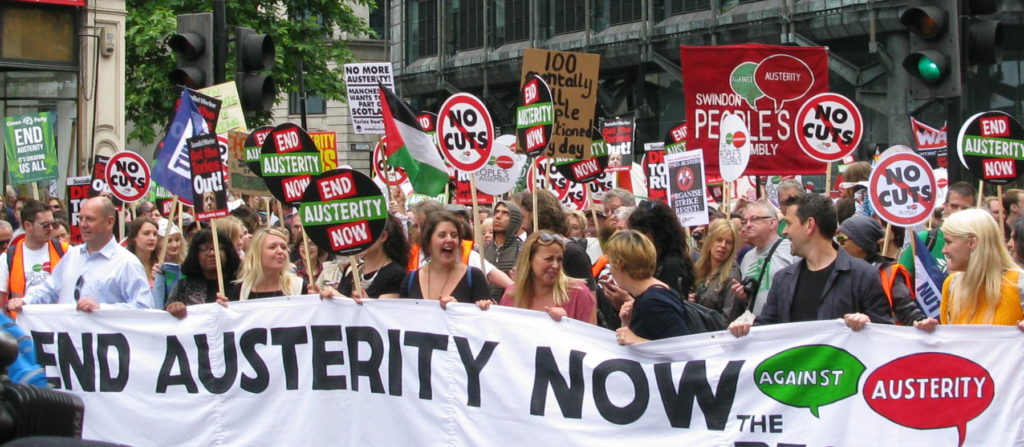Cheap bonds are a harbinger of doom – or the solution to it
This week the yield on German two year bonds hit 0%. In other words, people are lending the German government money up to 2014 and asking for no interest. US bonds are at 1.62%, the UK at 1.09% – the lowest rate we’ve had since records began – in 1703.
Regular readers of Bright Green may have noticed that I have a slightly odd occasional habit of watching the bond markets – they were the original justification for the cuts, so it’s useful to see what they’re doing. And this is extraordinary – lowest since 1703.
This means just one thing – as scrawled across the top of Thursday’s Financial Times – “investors flee to havens.” People with access to large investment funds are so scared of a further economic collapse that they aren’t willing to invest in anything at all risky. And so they hand money to the governments of big economies, and beg them to look after it.
What’s important about this though is the opportunity cost – if investors are all trying to buy government bonds, this shows that they are desperate not to take risks: you only flee to a safe haven if you are afraid. That makes sense as an individual trader. But as a society we need to take financial risks – we need to invest in new things. If those who control how we invest in our society are refusing to take any risks, then our economy is in real trouble – we can’t rebuild our economy. The record low interest on government debt is, then, a sign that neo-liberalism is in serious trouble – that austerity is forcing it to collapse in on itself.
But as well as the canary in the mine shaft, low bond yields are also the ladder out of it. Because investors are desperate to lend to governments. These governments could do what the UK is doing – refusing to take this money. Or they could do as the markets want, take the money, and take on the risk of investing it.
Large pension funds sometimes talk about the problem of being a universal investor. And this is perhaps the best way to see the government in this circumstance. Imagine you have shares in a pulp factory, and you also have shares in a hotel down river from the factory. The factory could maximise its profits for you by refusing to bother to clean up the effluent it pumps into the river. But this makes the river stink, and tourists stop coming to the hotel. As an investor in both, it makes sense for you to make a bit less profit from the mill if this stops the mill destroying the hotel’s business.
Governments are the ultimate universal investors. It might make sense for each individual to stop taking risks. But if everyone does this, then no one invests in anything productive, and everyone is in trouble. So, for the government, at a time when others aren’t investing, surely it makes more sense to themselves invest rather than allow the whole economy to collapse? Especially when they can borrow at the cheapest rate since 1703?
I don’t often say this, but the price mechanism in the market is telling the government to borrow. For once, let’s do what they say…



Stuart – exactly. I’m basically saying that low yeilds come hand in hand with ‘WE BUY GOLD’ signs.
Of course, there is a point – Greece and Italy have hit it – where you yeilds go the other way, after your economy has collapsed. And it is important not to pretend that the bond markets know what’s best – they are the antithesis of democracy, and have huge power. But what’s happening in Britain isn’t a sign of success, it’s a sign of failure…
Thing is, the Tories, of course, will point to those low yields for the UK bonds as evidence of the success of their austerity programme, arguing that the bond markets have restored ‘confidence’ in the UK’s ‘fiscal responsibility’.
And that’s an artificially convincing argument. But presumably what you’re trying to argue is that bond yields are a reflection of the dire state of the rest of the global economy and that, comparatiely, the UK – even with its sluggish growth – is still very safe?
It’s also worth pointing out that the likes of Ireland, Greece, and Portugal were punished by the bond markets *after* implementing austerity, not before. And it’s easy to understand why that’s the case once you think about – cuts strip demand out of the economy, caus a collapse in growth, and finally a collapse in revenue.
Even Standard and Poors described austerity as ‘self-defeating’ earlier this year.
milind – sorry, I got the 0% figure from the FT. Either way, when you count inflation, you get back less than you give them…
thanx – thoughtful blog.
being the quibbling sort, though, i think you’ll find that german (2yr) bond yields were at 0.002 per cent last week – Not ‘BEG them to look after it’ (myCAPS) But PAY them (a little, admittedly) to look after it…
point being – if govt is investor of last resort, and has the breadth of interest (upstream + downstream etc,) and now has (a little, admittedly) money To invest – we’re Saved!
peace